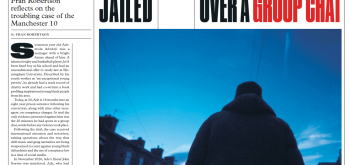Accidents happen but sometimes they happen not through bad luck, misfortune or ‘wrong place-wrong time’ but because somebody else made a mistake. If this should happen to you then you have the right to bring a claim for compensation for your injuries and other losses (lost income, damage to property damage, medical expenses).
The legal principle is that you should be returned to the position you were before the accident, through compensation and the provision of medical treatment, as far as possible. Legal aid is not available for accident or personal injury claims. It is still available for medical accident (clinical negligence) claims.
If your claim is likely to succeed, you should be able to find a lawyer who will act for you under what is known as a ‘no win, no fee’ agreement or a conditional fee agreement (CFA). You can find out more information about ‘no win no fee’ on the Justice Gap advice guide here. A CFA covers the arrangement for YOUR lawyer’s fees and so your lawyer will also discuss with you how you can protect yourself against the risk of losing the case and the possibility of having to pay the other party’s legal fees. This is usually done by taking out an insurance policy known as an after the event (ATE).
There are other ways of bringing a legal action – for example you might be covered by an existing legal expenses insurance policy (under your motor or home insurance) or as part of the membership services offered by your trade union.
In general terms there are two outcomes to consider:
If you win:
Your lawyer will recover legal costs from the other party. Under a CFA, the law firm is able to charge a ‘success fee’ which they are able to claim from the other party if the claim is successful. The success fee can be as much as double the legal costs your lawyer is able to claim. The idea is to reward the risk of the lawyer running your case – hence the name ‘success fee’. Plus the sum contributes towards the overheads of cases that may be lost under CFAs. The idea is that the winners have to pay for the losers. So the ‘success fee’ is based on the risk associated with your case although it may be fixed in some types of claims (for example, road accidents and employment claims). You are also able to claim back the cost of the ATE insurance premium and other costs such as medical reports (called ‘disbursements’).
If you lose:
In the event the case is lost you will not be required to pay your lawyers’ fees. The ATE insurance policy will pick up the legal fees of the other party and cover the cost of any disbursements.
All change
Plans are afoot to radically overhaul ‘no win, no fee’ under its Legal Aid, Sentencing and Punishment of Offenders Bill. Ministers are proposing that the success fee is no longer be paid by the other side but, instead, it will be paid by you from your injury award. Some protection is to be provided by capping the success fee at a maximum 25% of the value of your award. To go some way to compensate for the impact on your damages, ministers are proposing that the awards for the injury aspect of your claim be raised by 10%.
And what if you lose? The government’s solution to this is known as ‘qualified one way cost shifting’. This means that the other party’s insurer pays their own costs whether they win or they lose – so there is no liability to you and no need for ATE insurance to cover the risk.
On the face of it this may seem OK but it is the word ‘qualified’ that is causing uncertainty – if you lose and you are ‘obviously wealthy’ (or you are a commercial enterprise) the insurer could seek to avoid their responsibility to pay your costs in a losing case. Nor does this proposal deal with the costs of disbursements (such as medical fees) which you will have to pick up.
You might think that those expenses are the reasonable costs of a failed claim but the reason why your claim fails might not be your fault. This potential risk might be enough to deter accident victims from brining legitimate claims.
It is difficult to ask people to think about something that they hope and believe will never happen to them but, under the proposed legal cost regime, access to justice to pursue a personal injury claim will only be available to you at a cost.
Under the legal aid Bill, the principle that you should be returned to the position you were before the accident will no longer exist as your compensation may have to pay the success fee charged by your solicitor. The CFA works on the basis that firms are able to take cases that they believe they are able to win and that the costs recovered from winning cases will allow them to fund cases that are either not successful or more ‘risky’. It is a fine balance and something that lawyers will have to monitor. Too many loses will make a firm unprofitable and jeopardise their future. You might think law firms should waive their success fee’ but, even if we were able to afford to do this, there would be a knock-on effect for the cases we will take. There would be no incentive for us to take cases that were anything other than absolute winners and your ‘access to justice’, now only available ‘at cost’, is further squeezed.





A detailed critique of the Court of Appeal judgment in the case of Oliver Campbell